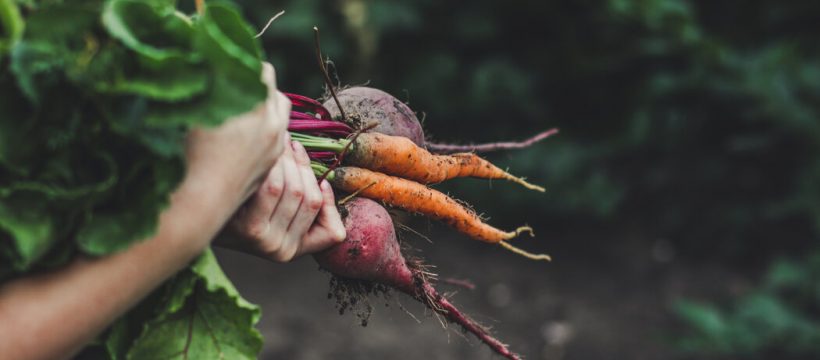Torben Lonne, a 34-year-old scuba diver in Copenhagen, never eats without considering the carbon footprint and the emission level of the food he’s about to consume. For that reason, his diet revolves around locally sourced fruits and vegetables, and pizza. He avoids avocados, however.
“Avocados that are made for export are incredibly carbon-intensive, especially when you consider farm to plate is actually several thousand kilometers away,” Mr. Lonne said. “Aside from the logistics, avocado farms have depleted many rivers and lakes, particularly in South America, in order to sustain our voracious appetite for guacamole.”
Mr. Lonne calls himself a climatarian, a term that first appeared in The New York Times in 2015, entered the Cambridge Dictionary the following year and is now becoming more common. Apps such as Kuri, introduced last year, offer climatarian recipes. Fast-casual restaurants including Just Salad and Chipotle are marking items that fit in the diet, like Paleo before it, on their menus.
There are also climatarian-friendly brands, including Moonshot, a carbon-neutral company in San Francisco that makes a line of crackers from regeneratively grown ingredients with stone-milled, heirloom wheat and 100 percent recycled packaging. Julia Collins, the 42-year-old C.E.O. and founder of Moonshot, has also started Planet FWD, which sells what she calls “sustainability software” to help other food companies calculate the environmental impact of their offerings.
When Just Salad added a climatarian menu option in September, more than 10 percent of their salad sales came from that menu, said Sandra Noonan, the chain’s chief sustainability officer, a position created in 2019).
Those who follow the diet stick with fruits and vegetables that are in season relative to their region; they avoid meat that comes from factory farms; and they seek local ingredients because those have lower carbon footprints, said Brian Kateman, the president and co-founder of Reducetarian Foundation, a nonprofit organization in Providence, R.I., that encourages eating fewer animal products. Many reducetarians are also climatarians: cutting back because they’re concerned about the climate crisis.
Mr. Kateman, 31, became one after reading a 2007 book, “The Ethics of What We Eat,” by Peter Singer and Jim Mason. He was horrified to learn that greenhouse gas emissions from agriculture increased by 12 percent from 1990 to 2019, according to the Environmental Protection Agency.
“No longer can it be said that our food choices — both at the individual and corporate levels — are personal ones,” he said. “We have only one planet, and we share it.”
Determining exactly how to do that when it comes to your diet, however, isn’t easy. While many climatarians aren’t vegetarians, since they believe that chicken or lamb are much better choices than beef, some eschew meat altogether since vegetables overall have a lower carbon footprint.
Mike Tidwell, 59, the director of the Chesapeake Climate Action Network, avoids almonds and pistachios because they require large amounts of water to grow. “The chronic droughts in California, brought on by climate change, have made me eat fewer foods that are very water intensive,” said Mr. Tidwell, who lives in Takoma Park, Md.
Maggie Vlasaty, 22, a marketing associate in Minneapolis, avoids beef, pork, and most other meats and seafood. She also doesn’t eat food from brands that support oil drilling. Before she goes to a restaurant, she looks carefully over the menu to see what she should order.
“If I don’t have time to do that, it becomes a stressful event for me,” Ms. Vlasaty said. “I’ve also adapted to going to friends’ houses or parties by usually eating before heading out.”
Shelbi Storme, 28, a sustainability blogger in San Antonio, Texas, started avoiding red meat when she learned how much water it takes to produce a single hamburger: 150 gallons for a quarter-pounder, according to the United States Geological Survey. But living in the state with bragging rights to the most cattle in America, it’s tricky for her to navigate meal options — especially when she goes out with friends.
Ms. Storme often uses the app Happy Cow to find vegetarian-friendly spots, but her friends aren’t always so accommodating.
“I have absolutely felt judgment over the years of eating a diet that is better for the planet,” Ms. Storme said. “I’ve heard it all, from ‘You know you will never make a difference’ to ‘But the meat is already here, why does it matter?’”
Climatarians can actually make a big difference, said Jennifer Jay, a professor in the department of civil and environmental engineering at UCLA.
“Food is the low-hanging fruit of the climate equation,” Ms. Jay said, citing a 2020 study predicting that even if fossil fuel combustion were immediately halted, the greenhouse gas emissions from food systems would still prevent us from meeting climate targets.
When students took a class on the connections between food and the environment, they decreased their red meat intake from three and a half to two and a half servings weekly, cutting emissions by the equivalent of 1 kilogram of carbon dioxide per day.
If this shift in diet were reproduced across the population for just one year, Ms. Jay said, it would result in a reduction of greenhouse gas emissions by 106 million metric tons — or the equivalent of one-third of the Paris Climate Agreement targets.
We’ll take it one smoothie at a time.
Source: Read Full Article

